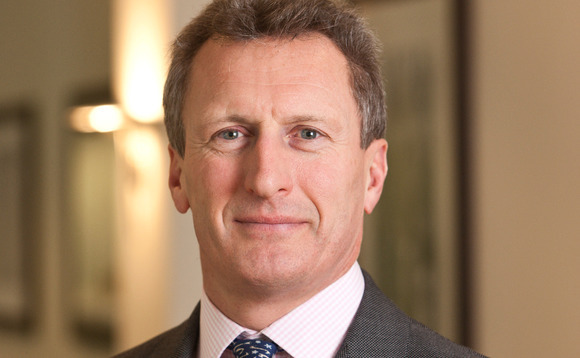
Q&A: GMT Communications Partners' Timothy Green

GMT Communications Partnersт managing partner Timothy Green speaks to Oscar Geen about the challenges of deal-by-deal investment, the potential impact of Brexit and the trend towards specialisation
Oscar Geen: GMT Communications Partners has made four exits this year, with the sales of Docugroup, MeetingZone, IT-Ernity and Primesight, which means your previous funds are almost fully realised. Have you deployed any capital recently?
Timothy Green: We have deployed some follow-on capital across the portfolio, but we haven't made any new investments since we finished deploying GMT III. We have come close on a few occasions, but deal-by-deal can be challenging; you really need the stars to align in order to get into exclusivity and get LPs on board, especially if you're in a competitive process of any kind.
OG: GMT has historically invested in three areas: communications infrastructure, content, and tech-enabled services. Where do you see the most value within these sectors today?
TG: As you might expect, we would not do any pure traditional publishing deals anymore, but there are many opportunities in digital publishing. You mentioned Docugroup earlier, a B2B information services focused on the construction industry, which we successfully sold to Towerbrook-backed Infopro Group earlier this year.
Tech-enabled information and services businesses are hugely interesting, particularly in the B2B arena, which tends to be much less volatile than B2C. Within this, there are many interesting businesses in sectors such as cloud and managed services, SaaS businesses generally, fintech, e-learning and healthcare IT.
OG: You have also invested across all of Europe from your base in London. Do you expect the UK's impending exit from the European Union to affect that and would you ever consider relocating?
TG: The short answer is no. We have historically completed around 85% of our investments outside the UK and find continental Europe to be a very interesting market – which we don't expect to change as a result of Brexit. In terms of the impact of Brexit on our business, my personal views on the mismanagement of the whole Brexit process aside, we would not see this necessitating a relocation of our operations. The kind of businesses we invest in are not constrained by national borders generally, and we will continue to operate from London for the foreseeable future.
More pertinent would be the impact on the legal structures and domicile of investment vehicles, and we will certainly look at Luxembourg as a result.
OG: Brexit aside then, what would you say is the biggest challenge your firm faces?
TG: The biggest challenge currently is pricing. We always look for the best management teams in high-growth sectors and then try to acquire these businesses at reasonable multiples, without applying too much leverage. One of the historical strengths of the mid-market has been its discipline, in terms of leverage, as much as anything, because it is difficult to put the layers of debt onto deals that are available to large-cap firms. Looking across our portfolio, the average leverage multiple is probably 3.5-4x.
OG: Would you consider a mid-market private equity fund a safer investment in a downturn?
TG: In my view, the answer is yes, mainly because there are many more deals in absolute terms available to mid-market firms, but also because the multiples on entry and exit are not so tied to the public market comps and therefore valuation cycles.
OG: Are LPs conscious of this in the current fundraising environment? And is it a good time for mid-market funds to be launching?
TG: The current trend for larger LPs is towards larger tickets in fewer funds, but my belief is that this trend is cyclical. The opportunity for alpha from mid-market funds will be too difficult to ignore. Fundraising slowed in the first half of 2018, potentially reflecting concerns about overheating in the public markets and macroeconomic trends around protectionism. That said, there remains a lot of liquidity in private equity generally at the moment, so, even accounting for the above-mentioned trends, conditions continue to be relatively good for fundraising.
OG: Another fundraising trend that we have observed is increasing specialisation by funds that are looking to differentiate themselves. Do you think this is a cyclical phenomenon?
TG: The economy and the world in general is getting more and more specialised. Why should private equity be any different? This most often manifests as geographical or sector specialisation, which I think is a sign of maturation more than cyclicality. Our own specialisation is more thematic. We know where we want to invest and the types of business, and it is clear that there are a lot of opportunities across Europe that fit into this theme.
Latest News
Stonehage Fleming raises USD 130m for largest fund to date, eyes 2024 programme
Sponsor acquired the public software group in July 2017 via the same-year vintage Partners Group Global Value 2017
Stonehage Fleming raises USD 130m for largest fund to date, eyes 2024 programme
Czech Republic-headquartered family office is targeting DACH and CEE region deals
Stonehage Fleming raises USD 130m for largest fund to date, eyes 2024 programme
Ex-Rocket Internet leader Bettina Curtze joins Swiss VC firm as partner and CFO
Stonehage Fleming raises USD 130m for largest fund to date, eyes 2024 programme
Estonia-registered VC could bolster LP base with fresh capital from funds-of-funds or pension funds









